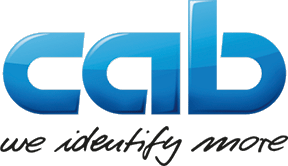Industry 4.0 solutions for product identification:
Questions to Mario Hiss


- Mario Hiss
Sales Director
Automated Product Labeling
In theory, we are talking and reading a lot about Industry 4.0. But what are the expedient scenarios that have already been put into practice?
Industry 4.0 has the potential not only in optimizing production processes, but also in offering services for manifold applications. Most users are quite unaware of the fact that devices like sports bracelets or smart home appliances have long become part of the Internet of Things. So, it will still take some time to have increased the topic’s transparency in the applications and to have recognized its purpose. Smart products always take the approach of simplifying our everyday life and that is in essence of interest.
What makes the labeling of parts, products or packaging an essential part of process chains in smart production?
Product labeling is no longer, and has not been for a long time just a possibility of identifying objects to end users. Labeling is needed to create, in the first place, a possibility of assigning production or customer specific data. The products’ tracking and tracing in the production or goods flow have been the key words for many years and still are today.
Please more specific!
With pleasure. With regard to Industry 4.0, information and communication technologies have been modified in such a way that the human machine interface, shortly HMI, has been extended by M2M, the machine-to-machine interface. Smart production facilities allow production lines to permanently communicate via M2M and to evaluate information collected via sensors. For production and logistics, this specifically accelerates communication processes, improves productivity and quality and lowers costs for the end user.
What puts a smart labeling system in a position of advantage compared to one less developed?
The effort of keeping PC controlled systems updated with regard to operating system, dependent driver software and virus protection is immensely high. With Industry 4.0, PCs will more and more disappear from the production processes and be replaced by smart devices. Smart systems are able to handle individual tasks of a process with the help of embedded processors, sensors and network engineering. By interacting with other network systems, they jointly reach full functionality.
At cab, we have been pursuing this approach for many years in the development of new control units for our label printers and automated labeling systems. We once were pioneers who had to be missionaries at the customer’s site in order to implement these forward-looking technologies. Today, Industry 4.0 offers quite different features. Smart labeling systems provide feedback about the device’s status and the labeling process. A common interface for all data relating to automation and labeling allows to integrate in a so called Cyber Physical System.
Is the large number of interfaces provided at cab labeling systems a unique feature?
The availability of the physical interfaces generally enables the devices to be integrated into systems. However, not only the interfaces will be relevant in the future. Only by implementing APIs, Application Programming Interfaces, it will be possible to have external access to device functions and provide complete functionality. Standards and rules as OPC-UA and MQTT make communication between human and machine secure.
We did not yet talk about Cloud Computing …
I think that nowadays everyone knows about the Cloud. It plays a special part in Industry 4.0 applications. Meanwhile, applications and services are mostly hosted online. Data for sensors, devices or software are stored in the cloud and may easily be exchanged between different systems. In addition to the many benefits for production processes related to the total networking, we need to keep an eye on the issue of implementation that, for the processing of live data, it is required to have full access and to have a possibility to store the data.
Data are described as a new kind of raw material. I agree to that, however I would like to emphasize that data security and ownership of data involves as a result that we will face completely new tasks and priorities. We at cab have already been meeting this challenge and therefore spend a lot of time on the development of products to work out targeted solutions.
HMI, CPS, M2M … which are the approaches of finding a solution that may actually be realized?
There is already a lot going on, noticed and unnoticed. Smart applications in logistics for example have implemented solutions that are apparent to everyone. Who would not be pleased to, wherever, quickly check via smart phone where the parcel is waited for? Smart production is currently the main topic in all major industries. For higher-wage countries in particular it is decisive to have value added processes and an optimized management of resources. My own personal experience is that the implementation of Industry 4.0 has modified the field of work, but also the people’s job profile in production and it will continue to do so.
January 2018

